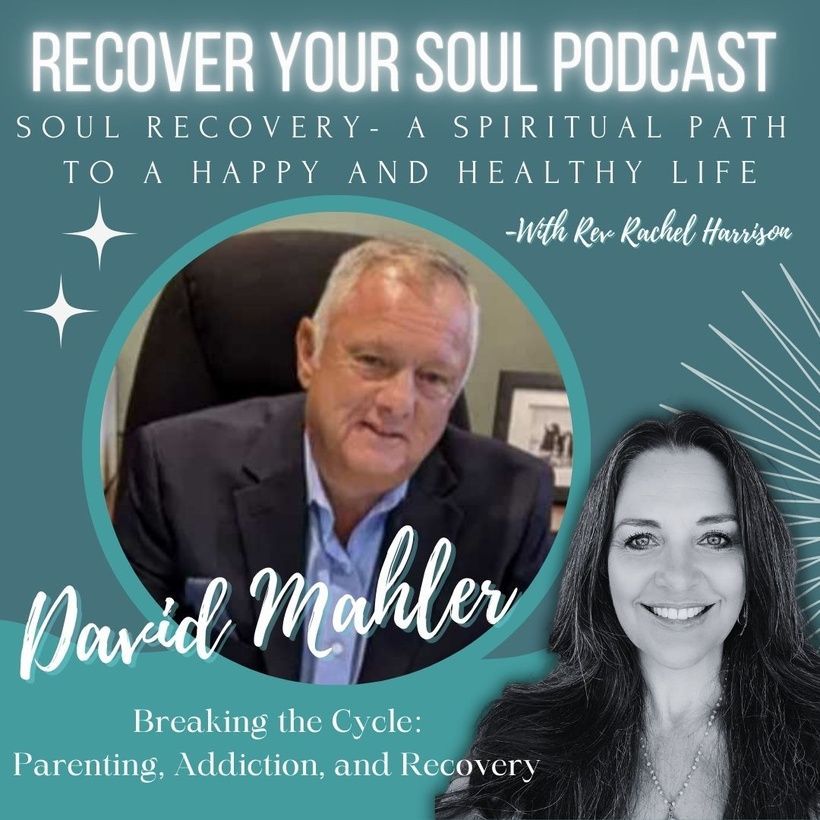BLOG
Blog Posts

By David Mahler
•
March 3, 2025
In the world of addiction treatment and rehabilitation, the terms "sobriety" and "recovery" are often used interchangeably. However, they represent two distinct concepts. While sobriety focuses on abstinence from substances, recovery is a much broader and more holistic journey of healing and personal growth. This is where a recovery coach can play an instrumental role in helping individuals understand these differences and embark on a more fulfilling life beyond addiction. Understanding Sobriety At its core, sobriety is about abstaining from drugs, alcohol, or other addictive substances. It's the first step toward breaking free from addiction. For many, achieving sobriety is the goal of entering a treatment program, and it often marks a significant milestone in their recovery journey. Sobriety is about stopping the addictive behavior that is harmful to an individual’s physical and mental well-being. However, while sobriety is an essential first step, it does not necessarily mean a person is "healed" or "recovered." Sobriety focuses primarily on the external action of not using substances, but it doesn’t address the deeper emotional, psychological, and behavioral issues that often underlie addiction. Without further growth and healing, a person can maintain sobriety but still feel stuck in a cycle of unaddressed pain, unhealthy patterns, or unresolved trauma. What is Recovery? Recovery, on the other hand, is a far more comprehensive concept. It’s not just about avoiding substances—it's about addressing the root causes of addiction and actively working toward healing, personal growth, and rebuilding a healthier, more fulfilling life. Recovery encompasses not only the absence of addictive behaviors but also the pursuit of emotional stability, mental well-being, and spiritual growth. Recovery can look different for each individual, as it’s a deeply personal process. It may include therapy, physical and mental self-care, rebuilding relationships, developing new coping skills, and finding purpose and meaning outside of addiction. Recovery is a lifelong journey that encourages individuals to continuously learn, grow, and make positive changes to improve their lives. It’s a holistic approach to healing that touches all aspects of a person’s well-being—physical, emotional, and spiritual. The Role of a Recovery Coach A recovery coach is a trained professional who supports individuals in their journey through recovery. Unlike traditional therapists or counselors who may focus on specific psychological issues, recovery coaches take a more action-oriented, holistic approach. They serve as guides, mentors, and accountability partners who help people navigate the challenges of recovery and develop strategies to live a balanced, substance-free life. One of the most powerful ways a recovery coach can assist individuals is by helping them understand and differentiate sobriety from recovery. Here's how they can do that: 1. Clarifying the Concepts A recovery coach can begin by clearly explaining the difference between sobriety and recovery. By defining sobriety as mere abstinence and recovery as an ongoing, proactive process, a coach can provide a framework for understanding why recovery is a deeper, more sustainable goal. This clarification helps individuals see that sobriety is just one part of the bigger picture and that the journey doesn’t end once they stop using substances. 2. Setting Long-Term Goals While achieving sobriety is a necessary first step, recovery coaches help individuals develop long-term goals for their personal growth. These goals often involve rebuilding relationships, enhancing emotional intelligence, pursuing hobbies, developing a sense of purpose, and addressing any underlying mental health issues like depression, anxiety, or trauma. A recovery coach works with clients to set realistic, measurable, and meaningful goals that align with their vision for a life beyond addiction. 3. Teaching Healthy Coping Strategies Many people who struggle with addiction also have difficulty managing stress, negative emotions, and challenging situations. A recovery coach helps individuals develop healthy coping mechanisms to replace the old habits associated with addiction. These might include mindfulness practices, stress-relief techniques, journaling, meditation, or engaging in physical activity. By developing healthier ways to cope with life’s difficulties, individuals can build a strong foundation for lasting recovery. 4. Building Resilience Recovery involves navigating challenges, setbacks, and even relapses. A recovery coach helps individuals build resilience by teaching them how to handle setbacks without giving up on their recovery journey. Instead of seeing failure as an endpoint, a coach helps clients reframe it as a learning experience. This resilient mindset helps individuals continue to grow, even when things don’t go as planned. 5. Encouraging Self-Discovery and Personal Growth Recovery is as much about self-discovery as it is about overcoming addiction. A recovery coach encourages clients to explore their interests, passions, and goals in life outside of addiction. They might guide individuals through exercises that help them identify values, strengths, and areas for personal growth. This journey of self-exploration helps individuals find meaning and purpose, which are key components of long-term recovery. 6. Accountability and Support Accountability is a crucial element of both sobriety and recovery. A recovery coach provides consistent support, encouragement, and motivation. They hold individuals accountable for their actions and help them stay on track with their goals. This support can make all the difference in ensuring that someone doesn’t just maintain sobriety but also actively engages in their recovery process. Conclusion The difference between sobriety and recovery is profound. Sobriety is about stopping the use of substances, while recovery is about healing and transforming one’s life. A recovery coach can play an essential role in helping individuals understand this difference, providing the support, guidance, and encouragement necessary for lasting change. Through goal setting, teaching healthy coping strategies, fostering resilience, and offering ongoing accountability, a recovery coach helps individuals not just stay sober, but thrive in their recovery journey. By focusing on the deeper aspects of healing, recovery coaches can help individuals lead fulfilling, meaningful lives free from addiction.

By David Mahler
•
January 1, 2025
The New Year often brings a wave of resolutions, with many individuals aiming for a healthier lifestyle. For those struggling with substance abuse, this can be a particularly poignant time for reflection and a renewed commitment to sobriety. While the journey to long-term recovery is undeniably challenging, hiring a recovery coach can significantly increase your chances of success. What is a Recovery Coach? A recovery coach is a trained professional who provides guidance and support to individuals seeking to overcome addiction. Unlike therapists, who focus on underlying psychological issues, recovery coaches primarily concentrate on practical strategies for maintaining sobriety. They act as mentors, accountability partners, and resource navigators, empowering individuals to take control of their recovery journey. Why Hire a Recovery Coach in the New Year? A Fresh Start with Dedicated Support: The new year often symbolizes a fresh start. Hiring the right recovery coach aligns perfectly with this sentiment, providing you with dedicated support as you embark on your sobriety journey. Personalized Guidance : Every individual's recovery path is unique. Your recovery coach will work closely with you to understand your specific needs, challenges, and goals. They can then tailor a personalized plan that addresses your unique circumstances. Increased Accountability: The presence of a recovery coach fosters a sense of accountability. Regular check-ins, whether in person or virtual, provide a consistent framework for tracking progress, identifying potential roadblocks, and staying on course. Skill-Building and Coping Mechanisms: Recovery coaches equip individuals with essential life skills, such as stress management, relapse prevention strategies, and healthy communication techniques. And coping skills these skills are crucial for navigating everyday life without resorting to substance use. Motivation and Encouragement: Maintaining sobriety can be an emotional rollercoaster. Your recovery coach provides unwavering support, encouragement, and motivation, especially during challenging times. Reduced Isolation: Addiction often leads to social isolation. A recovery coach can help you reconnect with your support system, build healthy relationships, and you cultivate a sober network. Improved Overall Well-being: By addressing the multifaceted aspects of recovery, a recovery coach can help you improve your overall well-being. This includes physical health, mental health, and emotional stability. Increased Confidence and Self-Efficacy: As you achieve milestones with the support of your coach, you'll gain confidence in your ability to overcome challenges and maintain long-term sobriety. Finding the Right Recovery Coach: Research and Recommendations: Seek recommendations from trusted sources, such as therapists, support groups, or other individuals in recovery. Credentials and Experience: Verify the coach's credentials and experience. Look for coaches with relevant training and a proven track record of success. Compatibility: Schedule an initial consultation to assess compatibility. Choose a coach with whom you feel comfortable and whose approach resonates with you. Investing in Your Recovery: Hiring a recovery coach is an investment in your long-term health and well-being. While there may be an associated cost, the benefits of increased support, accountability, and personalized guidance can be invaluable on the path to lasting sobriety. The new year presents a unique opportunity for a fresh start. By embracing the support of a recovery coach, you can increase your chances of achieving your sobriety goals and building a fulfilling life in recovery.

By David Mahler
•
December 12, 2024
Below is my guest appearance with Dr. Mie Lynn Tsuchimoto as part of her online event "Creating Emotionally Healthy Relationships – Workplace Edition Summit" where we discuss Substance Use Awareness for the workplace, and breaking the stigma. You can find the full podcast below:

Breaking the Cycle: Parenting, Addiction, and Recovery with David Mahler - Recover Your Soul Podcast
By David Mahler
•
December 11, 2024
"In this heartfelt and powerful episode of Recover Your Soul, Rev. Rachel Harrison sits down with David Mahler, a recovery coach and founder of Ground Zero Coaching. David shares his inspiring journey as a 9/11 survivor, father, and recovery advocate, offering deep insights into the challenges of parenting through addiction and the healing power of recovery. David opens up about his personal experiences navigating his daughter’s struggles with addiction and how they led him to confront his own codependency and habits. Together, Rachel and David explore the importance of creating a supportive system for loved ones while prioritizing personal healing and spiritual growth. From his transformative work with Celebrate Recovery to the founding of his coaching practice, David’s story is a testament to the resilience of the human spirit and the impact of compassionate boundaries. He also offers practical tools for those facing similar struggles, emphasizing the importance of community, self-awareness, and detachment with love." - Rev. Rachel Harrison Click here to listen to my guest appearance on the Recover Your Soul podcast .

By David Mahler
•
November 18, 2024
Kratom (Mitragyna speciosa) is a plant native to Southeast Asia, whose leaves are used for their stimulant and sedative properties. In recent years, it has gained popularity in the United States, especially as an alternative to opioids and as a natural remedy for pain, anxiety, and depression. However, as with many substances, kratom use can lead to dependence and addiction, and its growing popularity has also been accompanied by concerns about its potential for abuse. When someone becomes addicted to kratom, they may face a range of physical and psychological challenges, including withdrawal symptoms, cravings, and difficulties in maintaining a healthy, balanced life. While traditional treatment methods such as detoxification and therapy are essential, addiction recovery coaching can play a pivotal role in supporting someone through their journey of recovery. This blog will explore how Ground Zero Recovery Coaching can help someone struggling with kratom addiction. Your Ground Zero Recovery Coach is a trained professional who works with individuals to help them achieve and maintain long-term sobriety. Recovery coaches are not therapists or counselors, but they provide valuable support to people in recovery by helping them navigate challenges, develop coping strategies, and create a sustainable plan for their future. They are allies in the recovery process, offering practical advice, emotional support, and accountability. Unlike therapists or medical professionals who focus primarily on clinical treatment, addiction recovery coaches work with individuals on a personal, day-to-day basis to help them apply what they’ve learned in therapy or detoxification programs to real-world situations. Your Ground Zero Recovery Coach will help you identify triggers, set and achieve goals, and provide encouragement when the road to recovery gets tough. Ground Zero Recovery Coaching Can Help with Kratom misuse, just like with other substance dependencies, Kratom misuse can be a complex and multifaceted issue that requires a holistic approach to treatment. Recovery coaching can be particularly effective in supporting individuals who are addicted to kratom by providing personalized guidance and practical tools to help them achieve sobriety. 1. Building a Personalized Recovery Plan: One of the first steps in recovery is creating a customized plan that takes into account the individual's specific situation, challenges, and goals. Ground Zero Coaching will work with the person to assess their current state of addiction, their reasons for using kratom, and their motivations for quitting. Together, they will craft a recovery plan that outlines short- and long-term goals, strategies for overcoming obstacles, and actionable steps to stay on track. For someone addicted to kratom, this plan might include tapering off the substance slowly (since abrupt cessation can lead to withdrawal symptoms), identifying triggers that lead to cravings, and establishing healthy habits to replace the time spent using kratom. 2. Providing Emotional Support: Substance Use disorder recovery is often a deeply emotional journey. People who are misusing substances like kratom may experience shame, guilt, and fear, and these emotions can hinder their progress. Your recovery coach will provide a safe, non-judgmental space where you can express your feelings openly. At Ground Zero we will also offer positive reinforcement and encouragement, helping individuals stay motivated even when they face setbacks. By fostering a relationship of trust and support, Your Ground Zero Coach can help you feel empowered and validated in your recovery efforts. 3. Addressing Underlying Issues: many individuals who become addicted to kratom may be using it as a way to self-medicate for underlying mental health issues such as anxiety, depression, or trauma. Your coach will not diagnose or treat mental health disorders, but will work in tandem with a therapist or counselor if necessary to ensure that emotional and psychological factors are addressed in the recovery process. Your Ground Zero Recovery Coach may help identify unhealthy patterns of thinking or behaviors that contribute to addiction and work with you on replacing these with more positive, healthy habits. By addressing underlying issues, your coach can help reduce the risk of relapse and encourage long-term recovery. 4. Helping with Cravings and Triggers: Kratom addiction, like other substance dependencies, is often accompanied by intense cravings and triggers that make staying sober difficult. Your recovery coach can help identify specific triggers that lead to the use of kratom—whether these triggers are emotional, social, or environmental. Once these triggers are identified, your coach can work with you to develop coping strategies to handle cravings in a healthy way. Coping strategies might include mindfulness exercises, distraction techniques, or finding alternative activities that bring a sense of joy or relaxation without the use of kratom. Your coach can also help practice emotional regulation, teaching you how to manage stress or negative emotions without turning to kratom as a crutch. 5. Accountability and Motivation: One of the key roles of your Ground Zero Recovery Coach is to provide accountability. When someone is trying to overcome an addiction, especially one to a substance like kratom, it can be easy to slip back into old habits or get discouraged. Your coach can help you stay on track by checking in regularly, reviewing progress, and offering constructive feedback. Accountability is often the difference between success and relapse in the recovery process. Knowing that someone is there to support you and hold you responsible for your actions can be a powerful motivator for individuals in recovery. By setting clear goals and regularly evaluating progress, your coach can help you stay focused on your recovery journey. 6. Developing Healthy Habits and Life Skills: Kratom misuse often disrupts many aspects of a person’s life, including work, relationships, and overall well-being. Your recovery coach can help you rebuild your life by focusing on developing healthy habits and life skills that support your recovery. This might include establishing a healthy daily routine, improving sleep patterns, incorporating exercise or meditation into your day, and building healthy social connections. Your Coach will also work with you to set achievable, meaningful goals that contribute to a sense of purpose and fulfillment. By focusing on building a well-rounded, balanced life, your recovery coach helps you to create a foundation for lasting sobriety and success beyond just overcoming kratom addiction. 7. Relapse Prevention and Long-Term Success: Recovery is a lifelong process, and relapse can be a reality for many individuals. However, your recovery coach can help mitigate the risk of relapse by teaching you how to maintain your sobriety and stay focused on your goals. Coaching will provide ongoing support, especially during high-risk situations, such as periods of stress or social pressure, when the temptation to use kratom might be greatest. By encouraging you to continue developing coping skills, reinforce healthy behaviors, and remain engaged in the recovery community, your coach will help ensure that you are equipped to face challenges and prevent relapse in the future. Addiction to kratom can be a challenging battle, but with the right support, recovery is entirely possible. Ground Zero Recovery coaching can provide the guidance, emotional support, and accountability necessary to help overcome an addiction to kratom . By working with a coach, you can gain insight into your substance misuse, develop practical coping strategies, and build the foundation for a sober, fulfilling life. Ground Zero Recovery Coaching can play a vital role in your journey toward healing, offering a blend of support, encouragement, and real-world tools to help you thrive in long-term sobriety.

By David Mahler
•
October 9, 2024
When a family member is struggling with substance use disorder, it can feel like the entire world is turned upside down. The chaos, uncertainty, and emotional turmoil can leave everyone feeling lost and alone. It's often overlooked that the family members of those in recovery are also experiencing their own unique challenges. This is where recovery coaching can make a significant difference. Recovery coaching is a form of support that goes beyond the individual struggling with addiction. It involves providing guidance, education, and support to the entire family, helping them navigate the complex journey of recovery together. So often parents and spouses find themselves in a no-win situation of how can I help my loved one without being a codependent or enabler. By addressing the needs of the entire family, recovery coaching can foster a more supportive and healing environment, promoting long-term recovery for all. Benefits of Recovery Coaching for the entire family Improved Understanding: Recovery coaching can help family members better understand substance use disorder and the recovery process. By learning about the disease, its causes, and potential treatment options, family members can develop a more compassionate and informed perspective. This understanding can reduce stigma and judgment, fostering a more supportive environment for the individual in recovery. Enhanced Communication: Effective communication is crucial for healthy relationships, especially during times of stress and crisis. Recovery coaching can help family members develop better communication skills, teaching them how to express their feelings, listen actively, and resolve conflicts in a constructive manner. This can improve family dynamics and strengthen relationships. Coping Strategies: Family members often experience a range of emotions, including guilt, shame, anger, and fear. Recovery coaching can help them develop healthy coping strategies to manage these emotions and avoid unhealthy behaviors. By learning to cope effectively, family members can maintain their own well-being and provide better support to their loved one in recovery. Relapse Prevention: Relapse is a common challenge in recovery, and family members can play a significant role in preventing it. Recovery coaching can help family members identify potential triggers and develop strategies to avoid them. By understanding the warning signs of relapse and providing support during difficult times, family members can help their loved one stay on track and achieve long-term recovery. Family Support Network: Recovery coaching can help create a strong family support network. By connecting family members with other individuals who have been through similar experiences, recovery coaches can provide a sense of community and belonging. This can be particularly helpful for family members who may feel isolated or overwhelmed. Empowerment: Recovery coaching can empower family members to take an active role in their loved one's recovery. By providing guidance and support, recovery coaches can help family members feel more confident and capable of helping their loved one succeed. This empowerment can foster a sense of hope and optimism for the future. Professional Guidance: Recovery coaching offers professional guidance from individuals who have specialized training and experience in addiction recovery. This can be particularly helpful for family members who may feel unsure about how to best support their loved one or navigate the complex challenges of recovery. In conclusion, recovery coaching is a valuable resource for families who are struggling with substance use disorder. By addressing the needs of the entire family, recovery coaching can promote healing, strengthen relationships, and increase the chances of long-term recovery. If you or a loved one is struggling with addiction, consider exploring the benefits of recovery coaching for your family. Contact groundzerorecoverycoaching.com

By David Mahler
•
September 16, 2024
Episode 23 of Ryan Penley's "The Next Fix" podcast features guest David Mahler of Ground Zero Recovery Coaching. In this episode, David opens up about his own battle with addiction and the difficult experiences he faced as his daughter struggled with substance abuse. They explore the complexities of addiction treatment, the devastating effects of fentanyl, and the crucial role of accountability and community support in achieving lasting recovery. Dave underscores the importance of raising awareness and educating workplaces about substance abuse issues, while passionately sharing his mission to support others through coaching and community engagement. His dedication to making a meaningful impact and dismantling the lingering stigma surrounding addiction is evident throughout the conversation. Connect with Ryan Penley: Ryan Penley Website Facebook Instagram Threads YouTube

By David Mahler
•
August 27, 2024
In today's fast-paced and demanding work environment, supporting employees with substance misuse issues is not only a humane act but also a strategic necessity. By prioritizing the well-being of employees, employers can create a more productive, supportive, and inclusive workplace. The Impact of Substance Misuse on the Workplace Substance misuse can significantly impact an individual's physical and mental health, leading to decreased productivity, absenteeism, and even job loss. According to SAMHSA, approximately 46.3 million people in the United States are living with substance misuse, and 70% of them are employed. This statistic underscores the prevalence of substance misuse within the workforce. Creating a Recovery-Ready Workplace A recovery-ready workplace is one that supports employees who are struggling with substance misuse and provides them with the resources they need to succeed in their recovery journey. Here are some practical steps employers can take to create such an environment: Raise Awareness and Education: Educate employees about substance misuse, its effects, and the importance of seeking help. This can be done through training sessions, workshops, or informational materials. Implement Supportive Policies: Establish policies that support employees in recovery, such as flexible work schedules, time off for treatment, and access to employee assistance programs (EAPs). Create a Stigma-Free Environment: Foster a culture of understanding and empathy by promoting a stigma-free workplace where employees feel comfortable seeking help without fear of judgment or discrimination. Provide Support and Resources: Offer a variety of resources, including counseling services, peer support groups, and access to treatment facilities, to help employees in their recovery journey. Promote Healthy Lifestyle Choices: Encourage healthy behaviors, such as regular exercise, proper nutrition, and stress management techniques, to prevent substance misuse and support overall well-being. Involve Professional Support: Consider partnering with recovery coaches, counselors, or peer support specialists who have expertise in substance misuse and can provide personalized guidance and support to employees. Proactive Measures for Prevention In addition to supporting employees in recovery, employers can take proactive measures to prevent substance misuse in the workplace. This includes: Drug Testing Policies: Implement reasonable drug testing policies that align with legal requirements and promote workplace safety. Mental Health Support: Provide resources for mental health support, such as counseling services or employee assistance programs, to address underlying issues that may contribute to substance misuse. Stress Management Programs: Offer programs and workshops to help employees manage stress and maintain a healthy work-life balance. The Benefits of a Recovery-Ready Workplace Investing in a recovery-ready workplace offers numerous benefits, including: Increased Productivity: Employees who are supported in their recovery are more likely to be productive and engaged in their work. Improved Morale: A supportive and inclusive workplace culture can boost morale and employee satisfaction. Reduced Absenteeism: By addressing substance misuse issues, employers can reduce absenteeism and improve overall workplace attendance. Enhanced Reputation : A company that prioritizes employee well-being and supports recovery can improve its reputation as an employer of choice. By implementing these strategies, employers can create a workplace where employees feel valued, supported, and empowered to succeed in their recovery journey. This investment in employee well-being will ultimately benefit the entire organization. #groundzerorecoverycoaching #workplacewellness #substanceusedisorderrecovery

By David Mahler
•
August 19, 2024
Relapse is a common challenge in addiction recovery. It's a complex issue influenced by various factors, including environmental triggers, emotional states, and underlying psychological issues. This is where a recovery coach becomes an invaluable asset. By providing personalized support, guidance, and accountability, a recovery coach can significantly reduce the risk of relapse and help individuals build a sustainable path to recovery. Understanding the Role of a Recovery Coach A recovery coach is a trained professional who offers support and guidance to individuals in their journey to recovery. Unlike therapists or counselors, recovery coaches focus on practical, goal-oriented strategies to help clients overcome obstacles and achieve their recovery objectives. They are often individuals in recovery themselves, bringing firsthand experience and empathy to their role. How a Recovery Coach Can Help Prevent Relapse Building a Strong Support System: * Identifying and connecting with support networks: Family, friends, support groups, and recovery communities can provide essential encouragement and accountability. * Fostering healthy relationships: A recovery coach can help clients develop and maintain supportive relationships that contribute to their overall well-being. * Creating a relapse prevention plan: This involves identifying potential triggers, developing coping strategies, and establishing a support system to address challenges. * Developing Effective Coping Mechanisms: * Identifying and managing triggers: A recovery coach can help clients recognize situations, people, or emotions that may trigger cravings or relapse. * Teaching healthy coping strategies: These might include relaxation techniques, mindfulness, exercise, and healthy outlets for stress. * Building resilience: A recovery coach can help clients develop the mental and emotional strength to navigate challenges without resorting to substance use. * Setting Realistic Goals and Creating Action Plans: * Establishing achievable goals: Recovery coaches help clients set realistic and measurable goals that align with their overall recovery objectives. * Developing action plans: Breaking down goals into smaller steps makes them more manageable and increases the likelihood of success. * Monitoring progress and making adjustments: Regular check-ins help clients stay on track and make necessary changes to their plans. * Enhancing Self-Care and Well-Being: * Prioritizing physical health: A recovery coach can emphasize the importance of nutrition, exercise, and sleep in maintaining overall well-being. * Addressing mental health: Identifying and managing underlying mental health conditions can significantly reduce the risk of relapse. * Promoting self-care activities: Engaging in hobbies, relaxation techniques, and other enjoyable activities can help prevent burnout and reduce stress. * Providing Accountability and Motivation: * Establishing accountability measures: Regular check-ins, progress reports, and goal setting can help clients stay committed to their recovery. * Offering encouragement and motivation: A recovery coach provides positive reinforcement and celebrates successes, helping clients stay motivated. * Building self-confidence: As clients achieve their goals, their self-confidence grows, making them more resilient to challenges. * Relapse Prevention Planning: * Developing a relapse prevention plan: This involves identifying potential triggers, developing coping strategies, and creating a support network. * Practicing early warning signs: A recovery coach can help clients recognize the early signs of a potential relapse and take proactive steps to prevent it. * Creating a relapse contingency plan: Having a plan in place for how to handle a relapse can minimize its impact and facilitate a return to recovery. Remember, recovery is a journey, not a destination. A recovery coach is a valuable companion on this path, offering support, guidance, and accountability every step of the way. By working together, individuals can develop the skills and resilience needed to prevent relapse and build a fulfilling life in recovery. Additional Considerations: * Individualized Approach: Every individual's recovery journey is unique. A skilled recovery coach can tailor their support to meet the specific needs and challenges of each client. * Long-Term Support: Recovery is an ongoing process, and relapse prevention requires sustained effort. A recovery coach can provide long-term support to help clients maintain their sobriety. * Collaboration with Other Professionals: Recovery coaches often work in conjunction with therapists, counselors, and medical professionals to provide comprehensive care. By understanding the role of a recovery coach and the strategies they employ, individuals can make informed decisions about seeking support in their recovery journey. With the right guidance and support, relapse can be prevented, and a fulfilling life in recovery can be achieved.
Let's Talk
The first step toward recovery is talking. Let's find a time where we can meet and talk about what's on your mind.
Get my posts directly to your inbox
Contact Us
Thank you for contacting us.
We will get back to you as soon as possible.
We will get back to you as soon as possible.
Oops, there was an error sending your message.
Please try again later.
Please try again later.
© 2025
All Rights Reserved | Ground Zero Recovery Coaching.
